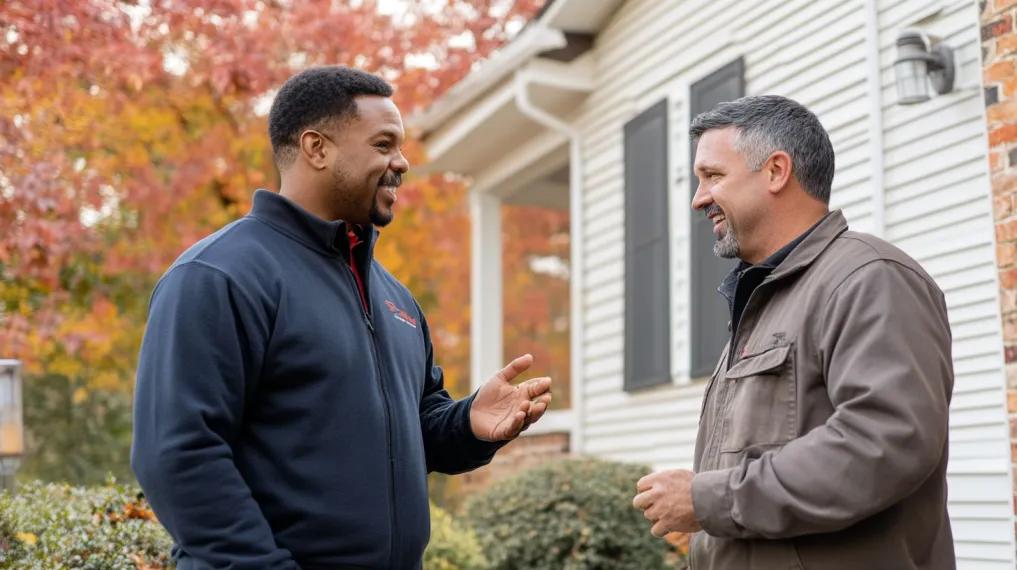Signs Your Boiler Needs Repair

Boilers are used in many homes, especially in the Northeast, to provide heat and hot water during the colder months. Occasionally, they can experience problems that may need repairs. If you’re not sure whether your boiler needs a fix, understanding the warning signs can help you address issues before they turn into major system problems that leave you without heat.
HVAC.com explains the key signs your boiler may need repairs, as well as some of the common boiler repairs that could be needed.
Boiler Repair Warning Signs
1. Unusual Noises
Boilers aren’t completely silent, but if you start hearing loud bangs, whistling, or gurgling sounds, that’s a red flag. These unusual noises often point to an internal issue. Common reasons include air trapped inside the system, low water pressure, or limescale buildup. The banging sound, often called “kettling,” happens when mineral deposits accumulate around the heat exchanger, causing water to overheat and boil.
2. Inconsistent Heating
If some areas of your home are colder than others or if your radiators aren’t heating up properly, this could be a sign that your boiler isn’t functioning efficiently. Inconsistent heating may result from a malfunctioning thermostat, trapped air in the radiators, or a problem with the pump that circulates hot water. This is particularly noticeable during colder months when your boiler is working the hardest to keep your home comfortable.
3. Unexplained Increase in Energy Bills
A sudden spike in your energy bills without any change in your heating habits could indicate your boiler isn’t running as efficiently as it should. When a boiler is struggling to heat your home or water, it uses more energy to get the job done. Older boilers or units that haven’t been serviced in a while are particularly prone to this issue. Boilers should receive maintenance at least once a year by a professional HVAC technician.
4. Frequent Cycling
If your boiler keeps turning on and off in short cycles, this is known as “short cycling,” which is a sign of an underlying issue. Short cycling can occur due to thermostat malfunctions, poor circulation, or an oversized boiler that generates more heat than your home needs. It’s not just annoying – it can lead to premature wear and tear, increasing the likelihood of breakdowns.
5. Leaking or Dripping Water
Any visible leaks or drips around your boiler should be addressed immediately. Water leaks can occur for various reasons, including a broken pressure valve, a faulty pump seal, or corrosion inside the system. Even a minor leak can lead to larger problems, such as water damage to your home or rust inside the boiler.
6. Foul Odors
If you notice any strange smells coming from your boiler or its vicinity, it’s a cause for concern. A sulfur or rotten egg smell could indicate a gas leak, while a burning odor might suggest overheating or electrical issues. In either case, these are serious hazards and require immediate attention.
7. Boiler Won’t Turn On
A boiler that refuses to start is obviously in need of repair. This could be due to a number of issues, including power supply problems, low water pressure, or a malfunctioning thermostat. Sometimes, the boiler’s pilot light goes out, especially in older systems, and it needs to be relit.
Common Boiler Repairs
When your boiler starts showing signs of trouble, it’s time for professional intervention. Now that you know when you need to call for boiler repair, let’s go over some of the most common boiler repairs technicians perform.
Pressure Relief Valve Replacement
Boilers need to maintain a certain level of pressure to operate efficiently. If the pressure becomes too high, the relief valve releases excess pressure to prevent damage to the system. However, if the valve is faulty or damaged, it can either cause leaks or fail to relieve pressure, leading to system malfunctions. Replacing the valve is a relatively straightforward repair that ensures the boiler operates safely and efficiently.
Thermostat Repair or Replacement
If your boiler’s thermostat is malfunctioning, it can cause inconsistent heating or prevent the system from turning on. A technician can recalibrate or replace the thermostat to restore proper communication between the heating system and the boiler.
Pump Repair
The pump in your boiler system circulates hot water throughout your home. Over time, it can become worn out or clogged, leading to poor heating performance. Pump repairs typically involve cleaning, lubricating, or replacing the pump entirely.
Heat Exchanger Cleaning
Limescale buildup on the heat exchanger is a common issue in areas with hard water. This build up reduces the boiler’s ability to heat water efficiently and can cause kettling. Technicians can clean the heat exchanger to restore efficient heating.
Pilot Light Repair
Older boilers often rely on a pilot light to ignite the gas burner. If the pilot light keeps going out, it may be due to a faulty thermocouple, dirty burners, or even drafts blowing it out. Technicians can troubleshoot the issue and relight the pilot or replace faulty components.